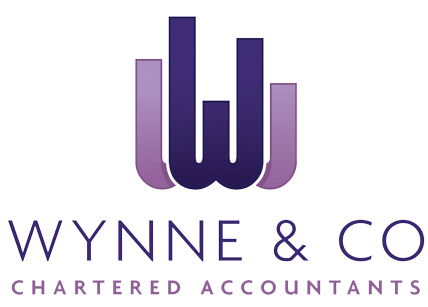
We’ve put together a guide on the latest advice and support measures in place for businesses in this challenging time. We’ll update this post as measures change…
Updated: 23rd March 2020
Watch our video for Sarah’s 12 point plan on helping your business cope with Covid 19.
Looking for more information with the support measures that the Goverment’s announced? This is what we know so far:
Coronavirus Job Retention Scheme
Under the new Coronavirus Job Retention scheme, government grants will cover 80% of the salary of PAYE employees who would otherwise have been laid off during this crisis. The scheme, open to any employer in the country, will cover the cost of wages backdated to 1 March 2020 and will be open before the end of April. It will continue for at least three months, and can include workers who were in employment on 28 February.
To claim under the scheme employers will need to:
- designate affected employees as ‘furloughed workers’, and notify employees of this change. Changing the status of employees remains subject to existing employment law and, depending on the employment contract, may be subject to negotiation; and
- submit information to HMRC about the employees that have been furloughed and their earnings through a new online portal. HMRC will set out further details on the information required.
HMRC will reimburse 80% of furloughed workers wage costs, up to a cap of £2,500 per month.
While HMRC is working urgently to set up a system for reimbursement, we understand existing systems are not set up to facilitate payments to employers.
Business that need short-term cash flow support, may benefit from the VAT deferral announced below and may also be eligible to apply for a Coronavirus Business Interruption Loan.
VAT payments
The next quarter of VAT payments will be deferred, meaning businesses will not need to make VAT payments until the end of June 2020. Businesses will then have until the end of the 2020-21 tax year to settle any liabilities that have accumulated during the deferral period.
The deferral applies automatically and businesses do not need to apply for it. VAT refunds and reclaims will be paid by the government as normal.
Income Tax payments
Income Tax payments due in July 2020 under the Self-Assessment system will be deferred to January 2021.
Income Tax Self-Assessment payments due on the 31 July 2020 will be deferred until the 31 January 2021. This is an automatic offer with no applications required. No penalties or interest for late payment will be charged in the deferral period.
Universal credit
Self-employed people can now access full universal credit at a rate equivalent to statutory sick pay.
HMRC Time to Pay
HMRC’s Time to Pay scheme can enable firms and individuals in temporary financial distress as a result of Covid-19 to delay payment of outstanding tax liabilities. HMRC’s dedicated Covid-19 helpline provides practical help and advice on 0800 0159 559.
Business Rates holidays and cash grants
No rates payable for the 2020-2021 tax year for any business in the retail, hospitality or leisure sectors.
In those sectors, if your rateable value is between £15K and £51k, you’ll also receive a cash grant of up to £25,000 per property.
Any business which gets small business rates relief, including those in the retail, hospitality or leisure sectors, will receive a cash grant of £10,000 (increased from £3,000 announced in the 11 March Budget).
The rates holiday and cash grants will be administered by local authorities and should be delivered automatically, without businesses needing to claim.
Coronavirus Business Interruption Loan Scheme
These should be available from Monday 23 March and are delivered by lenders that partner with the British Business Bank, including all the major banks. The lender receives a guarantee of 80% of the loan amount from the government.
They are available for UK-based businesses with turnover of no more than £45 million and can provide for a facility up to £5 million. The borrower remains liable for 100% of the debt.
No interest will be charged for the first 12 months.
You should be aware that normal bank lending criteria apply, it is not a loan from the government. It may be difficult to get these loans and also take time, so its not a “quick fix”
Mortgage and rent holiday
Mortgage borrowers can apply for a three- month payment holiday from their lender. Both residential and buy-to-let mortgages are eligible for the holiday. It is important to remember that borrowers still owe the amounts that they don’t pay as a result of the payment holiday. Interest will continue to be charged on the amount they owe.
Tenants can apply for a three-month payment holiday from their landlord. No one can be evicted from their home or have their home repossessed over the next three months.
Insurance claims
Businesses that have cover for both pandemics and government-ordered closure should be covered. The government and insurance industry confirmed on 17 March 2020 that advice to avoid pubs, theatres, etc., is sufficient to make a claim as long as all other terms and conditions are met. Insurance policies differ significantly, so businesses should check the terms and conditions of their specific policy and contact their providers.
However we have spoken to commercial insurance brokers and been advised that the vast majority of customers do not have cover for this.
Statutory Sick Pay (SSP)
If you’re a director of a limited company with less than 250 employees, you can pay yourself two weeks of SSP if you need to self-isolate subject to meeting the minimum payroll requirement for SSP.
The government will refund £94 per week, maximum £188, to your company.
It will also refund SSP for staff of businesses with less than 250 employees for up to two weeks.
Keep in touch with updates
Follow us on Facebook to keep in touch with our latest news, as advice is clarified or updated.
